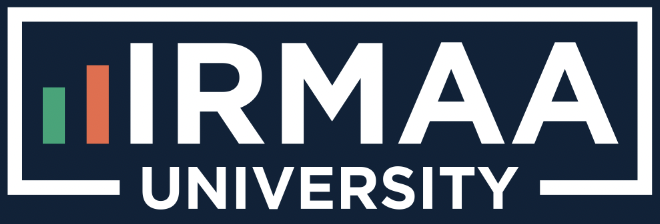
Preparing an accurate financial plan for your golden years is not precise if you do not factor in healthcare spending in retirement. Which, believe it or not, many planning for retirement neglect to do. It is no fault of their own, as more often than not such an important piece of the puzzle is overlook by our trusted financial advisors, mentors, employers and financial counselors. However, such a seemingly minute factor in your retirement plan actually has the capability of derailing your entire budget in the blink of an eye.
Changes In Legislation That May Affect What Your Health care Might Actually Cost You
Recent changes in legislation have had a large impact on healthcare costs for retirees. Congressional provisions have led to increases in health care spending for retirees, increased taxes and decreased Social Security benefits. For over 66 percent of American citizens Social Security makes up greater than 52 percent of their annual income in retirement. Since 1962, according to the Social Security Administration, the percentage of Americans entering retirement with any sort of retirement asset has remained relatively constant at about 53 percent. Therefore these rising costs and declining benefits are significantly affecting those who are in retirement today without assets and further threatening the security of those looking ahead towards retirement tomorrow. In addition, other legislative changes have resulted in higher health care costs for those retirees that actually have retirement asset or rather larger retirement income. So what does that mean? It means in reality that retirement nest egg you have worked your whole life to accrue may actually count against you in your golden years, in terms of what you can expect your health care cost in retirement to be.
Healthcare Costs In Retirement Are Now Mandatory
A 1993 change to the Program Operations Manual system for Social Security is a change that affects all Baby Boomers as well as following generations. This ruling makes this costs obligatory, as it states that all retirees who are eligible must enroll in Medicare or will forfeit all past, present and future Social Security benefits. Fortunately, in 2003 these program changes were reconfigured a bit allowing for a late enrollment. However, those who do not enroll immediately upon being eligible will be hit with a Late Enrollment Penalty on Part B and Part D of the program that will follow them for the remainder of their life. The result of these statutory provisions is that for the first time in history retirees have mandatory costs, in terms of health care, throughout the life of their retirement.
How Related are Medicare And Social Security?
According to the Medical Board of Trustees report the rate at which Medicare is inflating is three times that of Social Security. The Social Security Trustees report predicts that Social Security will not see the same rate of inflation as Medicare. In fact, quite the opposite, where they are predicting Social Security to remain constant and even perhaps decline through 2022. So what does this mean with regards to your health care spending in retirement? Under the Medicare and Social Security Guidelines if you are a retiree receiving Medicare (as you are required to be) your premium is directly deducted from your Social Security benefit. Therefore, as the price of health care continues to rise and the amount of your benefit remains constant or perhaps slightly decreases, your retirement income will as a direct result decrease. For those who have no retirement assets, or do not plan to when they enter retirement – who live solely off of Social Security – this is of monumental concern. As costs unavoidably increases for retirees their amount of income in which they have to live off of is declining to a nearly unfeasible amount.
Have You Factored This Into Your Plan?
Regardless of how good Medicare plans may be the do not cover everything. Not even close, in fact. According to the Employee Benefit Retirement Institute Medicare only covers roughly 51 percent of medical expenses in retirement. More bad news for those entering retirement without any assets.
A recent study revealed that among Americans who had built their financial plan for retirement, only 8 percent considered what their costs would be. Are you part of the minority that have adequately planned for a stress-free retirement? Or have you neglected to factor in your costs of healthcare spending in retirement at all?
Will My Mandatory Costs Be A Significant Hit To My Budget?
There is no sense in sugar coating it, with or without Medicare your costs of healthcare in retirement will be expensive. There are many unknown factors that simply cannot be accounted for, however there are some that can. When figuring your cost of health care in retirement it is important to consider:
• How healthy you are
• Whether or not you will be receiving employer-provided retirement benefits
• Medicare coverage and whether or not you have gap coverage
How Can I Estimate My Costs In Retirement?
Estimating what healthcare might run you as a retiree has never been simpler thanks to Jester Financial Technologies. Use our FREE online calculator to estimate what your health care spending in retirement could be and bring yourself one step closer to proper financial planning and freedom in retirement, today.
What is HealthcareRetirementPlanner.com
Healthcare Retirement Planner (HRP) is a comprehensive solution that helps identify potential problem areas in a retirement plan and design options to minimize the problem.
On an ongoing basis, HRP conducts research and aggregates all data to be used in its analysis algorithm. Pulling from areas such as The Congressional Budget Office, Centers for Medicare and Medicaid, polling individual insurance carriers across the United States along with private research firms, and positions HRP as having the most accurate information and calculations available.
Within the calculation process there are many variables that need to be considered, as the solutions are customized to each individual’s retirement plan. Variables that are required to analyze financial situations include, but are not limited to: age, gender, location, overall retirement income, types of retirement income, inflation and COLA. HRP has simplified this process.
The process of using HRP is straight forward. Simply by answering a few simple demographic questions, entering retirement asset information and income, along with assorted growth rates, you are supplied with a detailed year by year analysis that projects out 20+ years as to how the investors’ current financial plan will be impacted by their Medicare costs and the impact on their Social Security benefit.
Who is HealthcareRetirementPlanner.com?
We are comprised of Financial Professionals, Medicare Specialists, Technology Experts and the foremost authorities on how this one cost will affect your bottom line especially when your health is on the line.
There are many financial institutions that do tremendous work when it comes to asset building, planning for college or creating stock/bond/mutual fund portfolios, but addressing concerns of affording health care costs…well for that, there is us.
Healthcare Retirement Planner was created with one purpose in mind: to provide data, education and tools necessary to help the financial industry create better financial futures and to plan for one of the biggest expenses in not only retirement, but life – their health.
In a time where health costs dominate the media, the political landscape and your bottom line, retirement planning with all of the facts have never been more important.
Origin of Our Data for Healthcare Cost in Retirement
On an ongoing basis, HRP conducts research and aggregates all Healthcare data to be used in its analysis algorithm. Pulling from areas such as The Congressional Budget Office, Centers for Medicare and Medicaid, polling individual insurance carriers across the United States along with private research firms, and positions HRP as having the most accurate Retirement information and calculations available.
